“Problematic skin” is often synonymous with a laundry list of remedies that attempt to treat it. But what if there was a way to help skin heal itself without the use of detergents, soaps, sulfates, parabens or chemicals of any kind?
That’s what Master Esthetician and practicing yoga instructor Denise Cartwright set out to do in creating her line, CRUDE. After struggling with chronically dry, patchy, acneic and inflamed skin, she discovered just how important a healthy microbiome is and what repeated use of soap and exfoliants could do to it over time. She developed CRUDE to offer an oil-based cleansing system to her clients that would allow the skin to do what it does best: heal itself, thrive and glow from the inside out.
We wanted to learn more about going soap-free, so caught up with Denise to find out what could work best for our (and your!) current skincare routine. Read her fascinating interview, below!
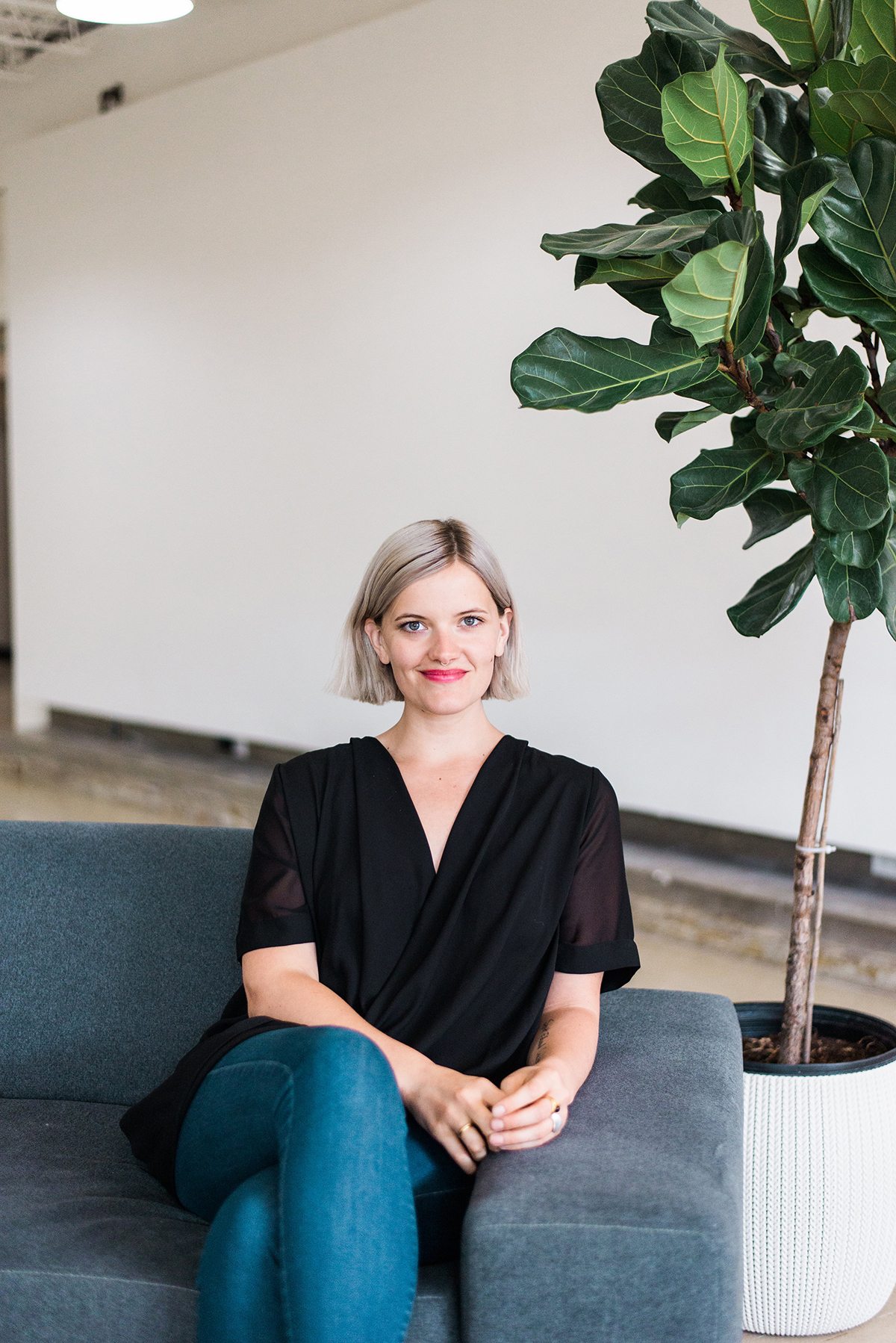
Darling Magazine: What is the “soap-free movement?” Does it apply only to skincare, or to hair and body care, too?
Denise: The soap-free movement has been gaining momentum over the last decade or so, but especially within the last couple of years with companies like Hairstory (a detergent-free product line launched by Bumble and bumble founder, Michael Gordon) making waves. Science has increasingly showed us that soap and detergent are bad news for our bodies and the planet and, because of that, people are starting to rethink their cleansing habits.
I was first introduced to this concept during the “No-Poo” trend that happened seven or eight years ago. During that time, consumers started realizing that if they stopped shampooing their hair, over time (usually a few months of greasy, stinky hair) their oil production would regulate and they wouldn’t have to wash their hair nearly as much.
I personally don’t use soap or detergent in any of my personal care routine. I wash my face and body with CRUDE, my hair with Hairstory’s New Wash and use Magic Mouth Oil Pull and Earthpaste for oral care.
DM: Why should someone consider going soap-free?
Denise: Soap is actually unnecessary for personal cleansing and extremely destructive to the ecosystems of your skin. Soap strips your skin of its natural moisture barrier, your body’s built in “shield.” This barrier keeps pathogenic bacteria out, holds vital moisture in, acts as a natural sunscreen and creates the slightly acidic environment your skin prefers (soap is highly alkaline). Soap also destroys the skin’s microbiome. These colonies of healthy (and helpful) bacteria work directly with your immune system to keep your skin healthy, clean and regenerated.
Humans didn’t evolve to use soap and didn’t start using it as a body cleanser until the early 1900s with the rise of mass marketing. That was when companies like Proctor and Gamble and Unilever’s highly-funded radio story ads turned into what we now know as “soap operas.” These companies used marketing techniques to convince women they were too smelly to marry and men that their “B.O.” was keeping them from getting a job. Before that, humans used oil and clay to cleanse.
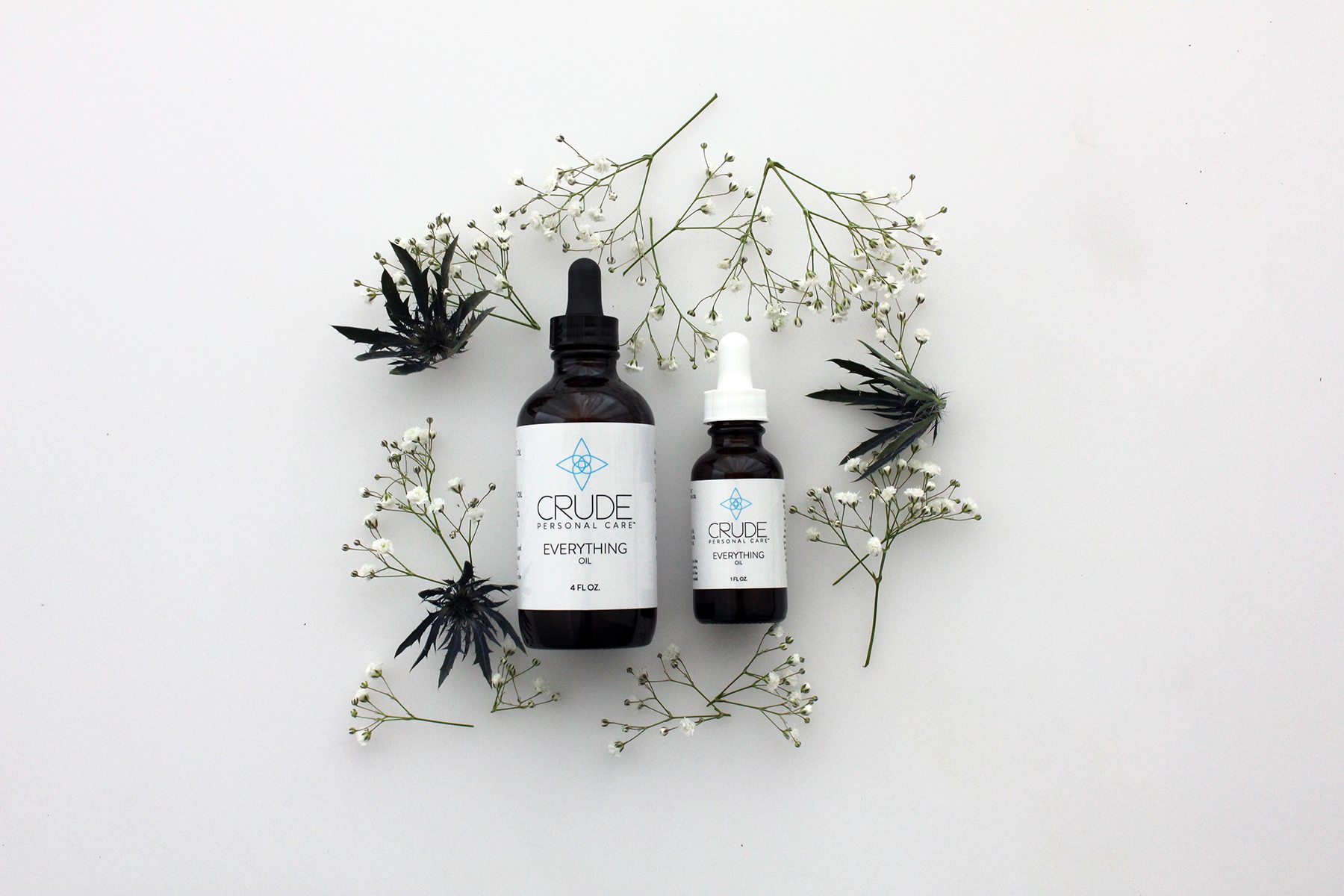
DM: Are certain kinds of oil best for different needs? (IE: eczema, acne, scarring, age spots…)
Denise: My favorite oils for cleansing are sunflower oil and grapefruit and bergamot essential oils (which are found in EVERYTHING Oil). They’re non-comedogenic, so they don’t clog your pores, and they regulate oil production whether you are oily or dry.
Jojoba and rosehip seed oils and geranium seed essential oils (found in BLOOM Regenerative Facial Oil) are perfect for those with acne scarring and hyper-pigmentation or those looking for intensive healing. These oils are highly potent and regenerative and also non-pore-clogging.
DM: What specific ingredients should we be most concerned about in our skincare products?
Denise: Soap, detergent, most exfoliants and artificial fragrance.
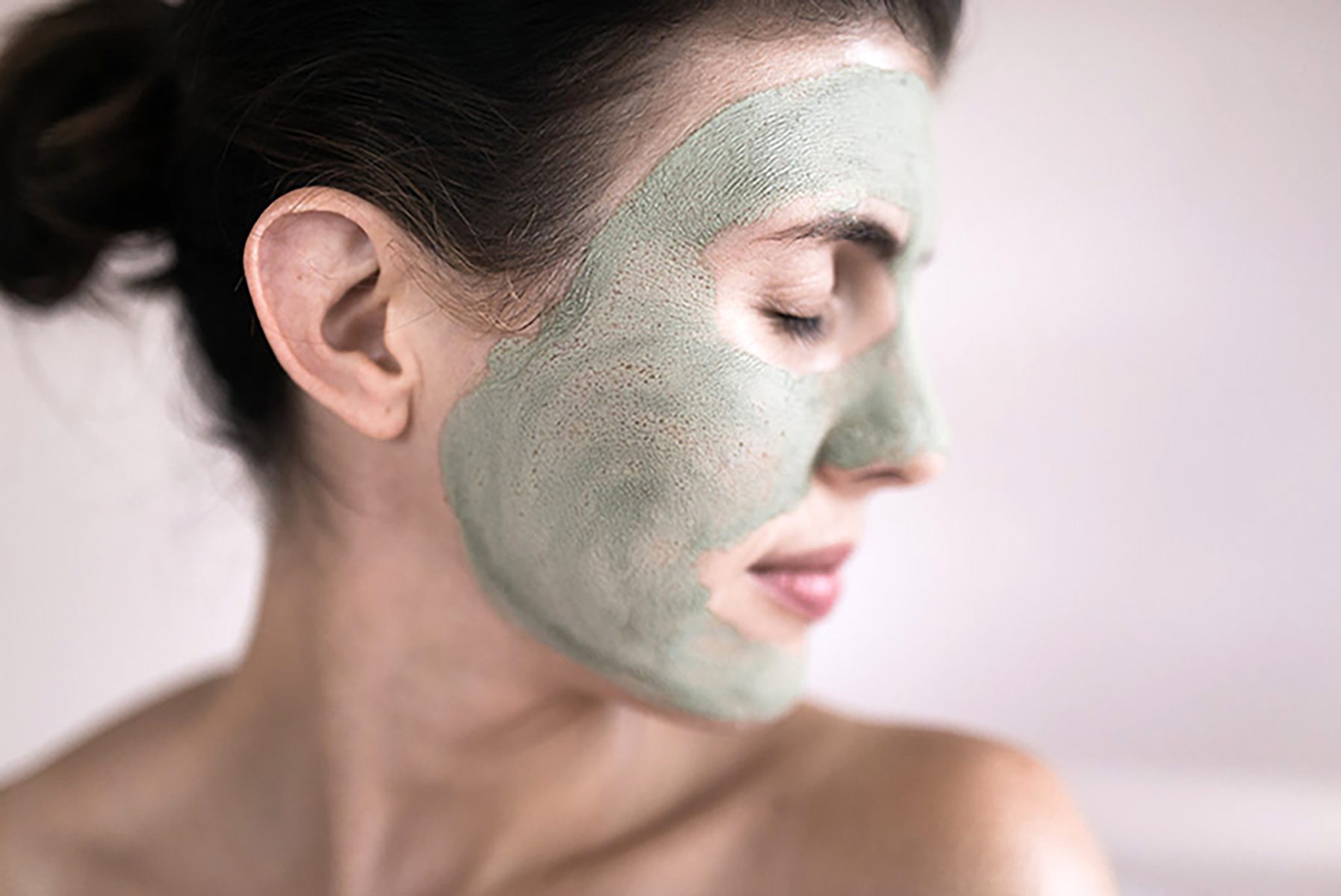
DM: What’s the best way to work oils into a skincare routine?
Denise: Oil is the absolute best thing you can use on your skin to keep it healthy, happy and functioning at its best.
Now, you’re probably already using oils in the hydrating step of your regimen (go you!). Take it a step farther and try using oils to cleanse your skin. Oil-cleansing may sound intimidating, but it’s really quite easy and it’s ultra effective!
Start with about a quarter-size amount of an oil designed for cleansing, like EVERYTHING Oil. Apply it to the skin (all over the face, including on eyes) and massage gently to release makeup, excess sebum, dirt and debris from pores. Then simply remove with a microfiber cloth like the PULL Microfiber Cloth, and voila! You have fresh, clean skin that’s not dry or uncomfortable. After oil-cleansing apply a few drops of your facial oil (I designed EVERYTHING Oil to be a multi-tasker, which means you can also use it to moisturize) to add extra hydration while nourishing and protecting the skin.
DM: Clay masks vs. peels vs. exfoliants. Which is best?
Denise: Exfoliation is the primary focus of most acne treatments, but I think that logic is flawed. The idea is that you are removing the dead skin cells from the surface of the skin and promoting regeneration by speeding up the skin’s cell renewal process.
What most don’t understand, though, is that the outer layer of the skin isn’t just comprised of useless dead cells. It’s an essential protective barrier that’s part of an intricate, intelligent ecosystem that makes up your skin. So why are we trying to outsmart the skin by destroying its ecosystems and speeding up its processes?
Nature is so much smarter than us, and there is a price to be paid when we start messing with things. Harsh exfoliants may have temporary benefits, but the long-term inflammation and destruction, in my opinion, isn’t worth it. Your skin is always exfoliating itself, that’s its job. You don’t need to help! If you need to exfoliant, choose wisely. The only “exfoliant” you’ll find in my line is a very gentle clay mask called DETOX Mask. It works to remove excess gunk from the skin without any scrubbing or stripping.
Learn more about CRUDE by checking out Denise’s shop HERE, and also on Instagram @livecrude and Facebook and Twitter.
Does your current skincare routine include oils?
Images via

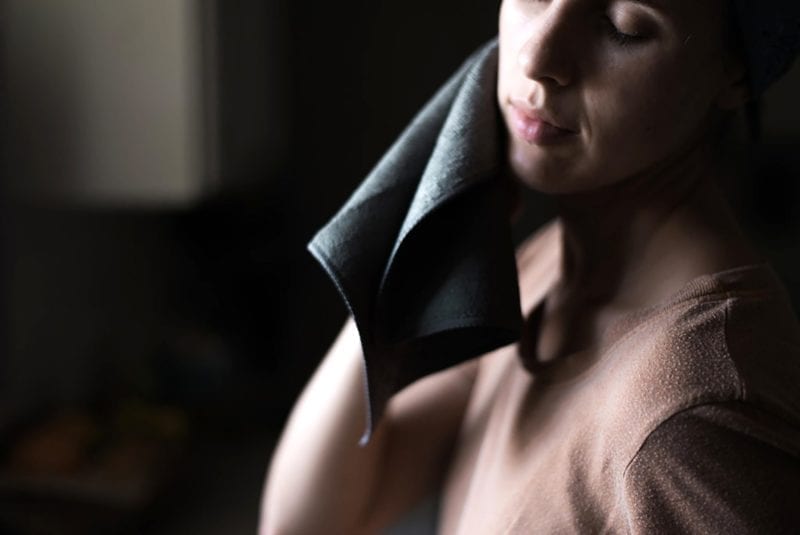
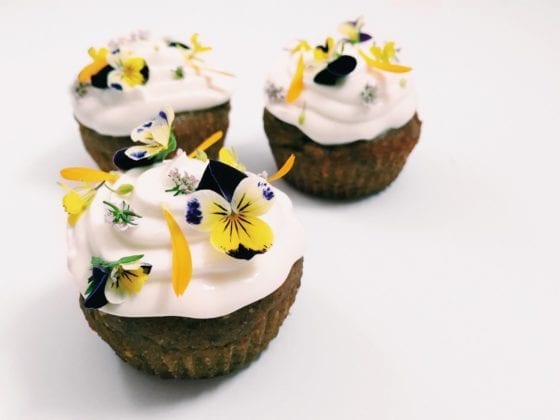

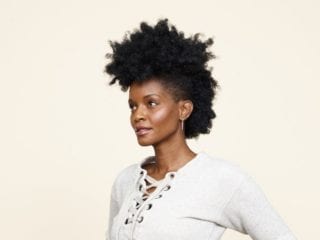


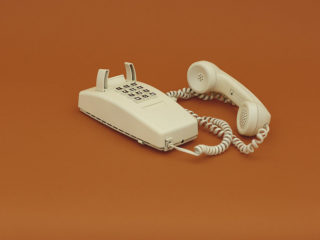
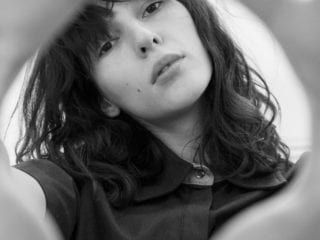


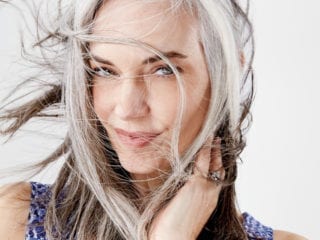
1 comment
What we call “soap”, the corporate made stuff, is not actually soap, but chemical cocktails. Notice they are not actually labeled soap. Instead, they are labeled facial bar, beauty bar, deodorant bar etc. Real soap is not drying and is made with oils. Only those that go through the process of saponification are called soap. Try buying handmade, small batch soap from a soapmaker locally. You will be shocked ar the difference. It has the beneficial oils intact. Commercially made soap often does not even use oils to produce their chemical bars, which is why they cause issues with the skin.